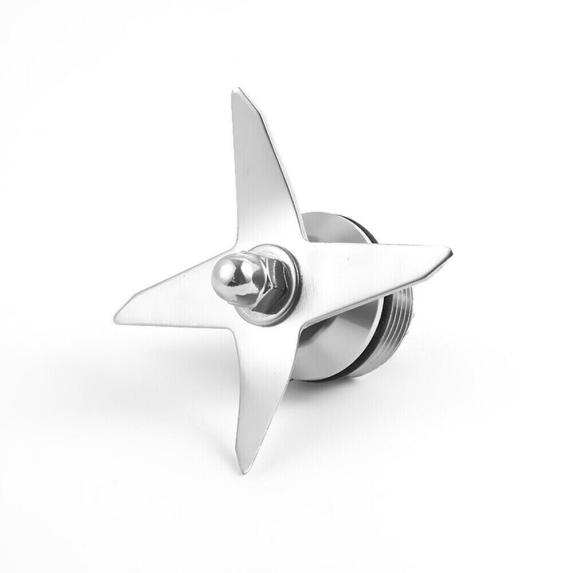Stainless steel 301 (SS301) is commonly classified into different temper grades based on the amount of cold working it undergoes. This cold working affects the mechanical properties, particularly strength and hardness. The common classifications are annealed (soft), 1/4 hard, 1/2 hard, 3/4 hard, and full hard.
Here is the typical chemical composition of SS301:
|
Element |
Composition (% by weight) |
| Carbon (C) | 0.15 max |
| Manganese (Mn) | 2.00 max |
| Silicon (Si) | 1.00 max |
| Phosphorus (P) | 0.045 max |
| Sulfur (S) | 0.030 max |
| Chromium (Cr) | 16.00 - 18.00 |
| Nickel (Ni) | 6.00 - 8.00 |
| Nitrogen (N) | 0.10 max |
| Iron (Fe) | Balance |

Stainless steel 301 with a hardness of 390-400 HV (Vickers Hardness) or equivalent hardness values (such as Rockwell C40-45) is typically in a hardened or cold-worked state. At this hardness level, SS301 exhibits high strength, wear resistance, and sufficient corrosion resistance, making it suitable for applications that demand durability and toughness.
Applications of 301 Stainless Steel at 390-400 Hardness in Mixer Blades:
Stainless steel 301 at this hardness level is particularly well-suited for mixer blades used in industrial and commercial settings. Here are the reasons why it's an excellent choice for such applications:
1. Wear Resistance
Mixer blades, especially in industrial mixers, are often exposed to high levels of abrasion, especially when mixing solid or semi-solid materials (e.g., dough, meat, chemicals, powders). The high hardness of SS301 (390-400 HV) ensures that the blades resist wear and maintain their sharp edges over time. This extends the service life of the blades and reduces the need for frequent replacements.
2. High Strength
With higher hardness comes increased tensile and yield strength, which is crucial for mixer blades that endure high-speed rotation and the impact of tough or heavy materials. Blades made from SS301 with 390-400 hardness can withstand these stresses without bending, cracking, or deforming, ensuring consistent performance even under heavy loads.
3. Corrosion Resistance
Although SS301 does not have the same level of corrosion resistance as SS304 or SS316, it still provides good protection against corrosion in most environments. This makes it suitable for food processing and chemical mixing applications, where the blades come into contact with acidic or moist materials. In industries like food and pharmaceuticals, SS301’s corrosion resistance ensures hygienic and safe operation, as the material won’t corrode or contaminate the product being mixed.
4. Stability and Balance
SS301 at this hardness level maintains a favorable strength-to-weight ratio, making the blades strong without being excessively heavy. This is important in mixers, where balance is critical to avoid excessive wear on the motor and to ensure smooth operation. Lightweight but durable blades also help maintain energy efficiency in high-speed industrial mixers.
Specific Uses of 301 Stainless Steel Mixer Blades with 390-400 Hardness:
1.Food Processing Mixers:
Dough Mixers: In bakeries, SS 301 stainless steel blades are used in dough mixers to handle tough, sticky doughs without wearing out. The high hardness ensures the blades maintain their sharpness and performance.
Meat Grinders and Choppers: SS 301 stainless steel blades are used in industrial meat grinders and mixers, where toughness and sharpness are essential for cutting through meat and other materials efficiently.
Blenders for Powder Mixing: In industries handling dry ingredients or powders (e.g., spices, baking ingredients), SS301 blades can withstand the abrasive nature of dry mixing.
2.Pharmaceutical Industry:
Powder Mixing Blades: SS 301 stainless steel blades are used in mixers for pharmaceutical powders and granules, where precision and non-contamination are critical. The hardness ensures consistent mixing, while the corrosion resistance maintains purity.
3.Chemical Processing Mixers:
Chemical Mixers: In chemical industries, SS 301 stainless steel blades handle abrasive and mildly corrosive materials, such as in the mixing of chemicals, detergents, or paints. The hardness level helps resist abrasion from harsh substances, ensuring the blades last longer.
4.Paint and Coating Mixers:
SS 301 stainless steel blades are used in paint and coating mixers where high viscosity materials are mixed. The hardness allows the blades to cut through thick substances without wearing down quickly.
Conclusion
Stainless steel 301 with a hardness of 390-400 HV is highly suited for use in industrial mixer blades, thanks to its excellent wear resistance, high strength, and reasonable corrosion resistance. In industries such as food processing, pharmaceuticals, chemicals, and paints, these blades are critical for ensuring consistent performance, durability, and cost-efficiency.
Post time: Sep-23-2024


